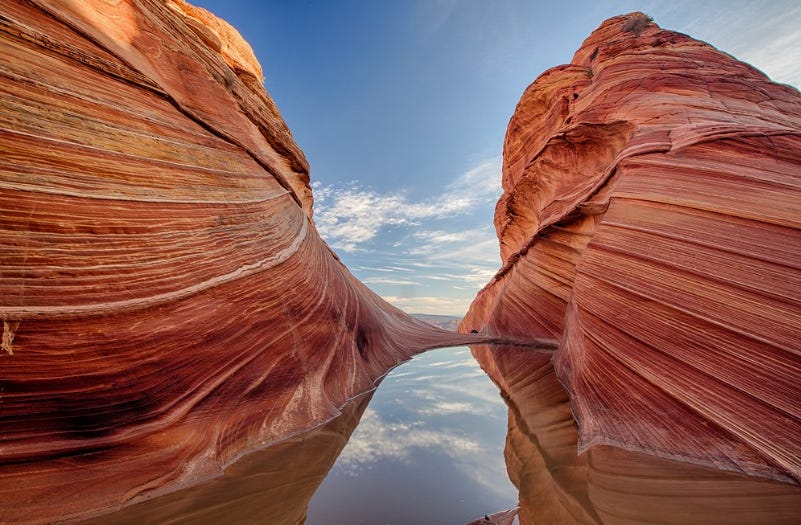
by Matt Stoller at BIG by Matt Stoller
Welcome to BIG, a newsletter on the politics of monopoly power. If you’re already signed up, great! If you’d like to sign up and receive issues over email, you can do so here.
Happy belated Thanksgiving. I didn’t say this last week, but I truly am grateful for you reading this newsletter and sending me your thoughts and ideas. It’s been a wonderful ride so far, and hopefully we’ll keep at it for a long time.
Today I’m writing about how the giant government contracting firm Booz Allen and 13 government agencies have been renting back to the public access to our own lands by forcing us to pay junk fees to use national parks. It involves a tour through late 19th century political economy thinking, with the first appearance of the great anti-monopolist Henry George, whose focus was land. Plus, a weird attempted monopoly of ID management software, controlled by software private equity giant Thoma Bravo.

“I Seen My Opportunities and I Took ’Em.” – George Washington Plunkitt of Tammany Hall
Two of the classic works of late 19th century American political literature, representing precisely opposite views of how commerce in an industrialized democracy ought to work, are Henry George’s Progress and Poverty, and the speeches of George Washington Plunkitt of Tammany Hall.
George was one of the great political economists of his day, and he ran and lost for mayor of New York City on an anti-monopoly and land reform ticket. George was interested in why we experienced tremendous inequality in the midst of great wealth, and traced it to the exploitation of land.
George was an international superstar, influencing both Teddy Roosevelt and Woodrow Wilson, as well as environmentalists and the modern libertarian movement. (There’s an iconic statue of the greatest mayor in Cleveland history, Tom Johnson, with Johnson holding a copy of Progress and Poverty.) The modern academic profession of economics arose in part as a reaction to the popular success of George’s work. The game Monopoly comes directly from George, and in many ways, the national parks, as well as everything from spectrum allocation to offshore oil drilling, must wrestle with Georgeist thinking.
But by land, he meant far more than just the plots upon which we live. “The term land,” George wrote, “necessarily includes, not merely the surface of the earth as distinguished from the water and the air, but the whole material universe outside of man himself, for it is only by having access to land, from which his very body is drawn, that man can come in contact with or use nature.” Unlike Marx, who saw the exploitation of capital over labor, George thought that the root of social disorder was a result of the power of the landowner over both capital and labor.
By land, he meant all value drawn purely from nature or from collective human existence. He would, for instance, consider ‘network effects’ a form of land, and likely seek regulation or national control of search engines. George had his first run-in with monopoly in San Francisco, where a telegraph monopolist destroyed his newspaper by denying him wire service. But his key work, in 1879, was written before the rise of the giant trusts, just as railroads, which were really land kingdoms, were becoming dominant.
A much more cynical set of works are the speeches of Plunkitt…
Continue Reading